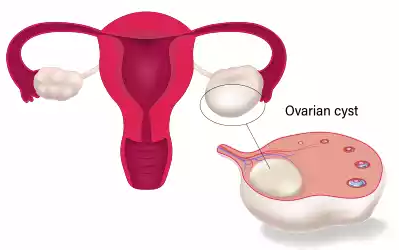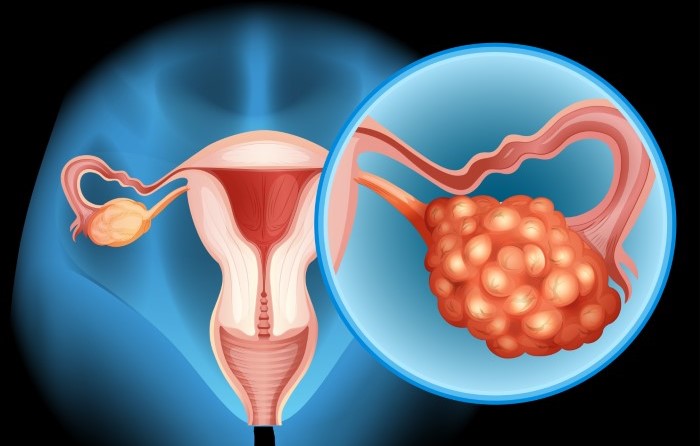The Link Between Menopause and Pelvic Floor Disorders

Menopause is a biological part of being a woman, and it normally comes at age 45-55. At this point, the body undergoes numerous hormonal changes, particularly a decrease in estrogen.
Although menopause is typically linked to hot flashes, mood swings, and sleeping difficulties, it may also impact the pelvic floor muscles, causing pelvic floor disorders. The connection is relevant to women's health, and professional advice could be of great assistance.
What Are Pelvic Floor Disorders?
Pelvic floor disorders occur when the muscles, ligaments, and connective tissues supporting the bladder, uterus, and rectum weaken or become damaged. These muscles form a sling at the base of the pelvis and help control urinary and bowel function. When they weaken, women may experience:
- Urinary incontinence (leakage of urine)
- Faecal incontinence (difficulty controlling bowel movements)
- Pelvic organ prolapse (a feeling of pressure or bulging in the vagina)
- Chronic pelvic pain or discomfort
Pelvic floor disorders can significantly impact daily life, leading to embarrassment, reduced physical activity, and emotional stress.
How Does Menopause Affect the Pelvic Floor?
The hormonal changes during menopause, particularly the decrease in oestrogen, have a direct effect on pelvic tissues. Oestrogen helps maintain muscle tone and elasticity in the pelvic region. As oestrogen levels drop, the pelvic floor muscles may become weaker, and the tissues supporting pelvic organs may lose strength.
This weakening can lead to common symptoms like:
- Frequent urination or urgency
- Stress incontinence (leakage while coughing, sneezing, or exercising)
- Vaginal dryness and discomfort
- Feeling of heaviness or pressure in the pelvic area
Women who have had multiple pregnancies, experienced childbirth trauma, or have a history of chronic coughing or constipation may be more prone to developing pelvic floor disorders during menopause.
Recognizing the Symptoms Early
Early recognition of pelvic floor issues is crucial for effective management. Women should watch for signs such as:
- Difficulty controlling urine or stool
- A bulge in the vaginal area
- Pain during intercourse or daily activities
- Recurrent urinary tract infections
Ignoring these symptoms can lead to worsening conditions over time. Simple lifestyle changes, exercises, and medical treatments can help prevent complications.
Preventing Pelvic Floor Problems
Pelvic floor issues may be difficult to solve, yet with a little action, women can minimise their risk and have a healthier pelvic floor, particularly throughout menopause.
- Tone Your Pelvic Muscles: The pelvic floor muscles may be strengthened by exercising the pelvic muscles regularly, using such exercises as Kegels. The frequent exercise enhances bladder control, mitigating the chances of prolapse and maintaining the pelvis's stability in general.
- Healthy Weight: Any excessive body weight imposes more stress on the pelvic floor muscles. A balanced diet and physical exercise help keep weight away and prevent these muscles from weakening due to the pressure.
- Prevent Constipation: Muscle damage in the pelvis can occur when straining during bowel movement. Take in a mouthful of fibre, drink enough water, and include moderate exercise to ensure proper digestion and freedom from constipation.
- Do Not Lift and Strain Heavily: Pelvic tissues can be strained by lifting heavy objects and straining over a period of time. Exercise good lifting techniques and avoid straining the muscles of your pelvis.
- Medical check-up from time to time: The most important thing is early detection. Frequent gynaecological examinations can help to assess pelvic health in time and take primary measures in case of problems.
Why Seeing a Specialist Matters
Pelvic floor disorders are complicated, and they may have numerous impacts on everyday life. Professional help is needed to make sure of a proper diagnosis and treatment.
Evaluation and Diagnosis by an Expert
An expert gynaecologist is capable of evaluating symptoms of menopause-related problems and diagnosing the culprit behind these issues in the pelvic floor. Well-determined diagnoses lead to effective curing and long-lasting relief.
Individual Care Plans
Each woman has a different body. Depending on the option, a specialist may draw up an individual treatment plan, including pelvic floor training, hormone treatment, or even surgery. Individual treatment offers a safer result and promotes a quick recovery.
Timely Treatment Avoids Complications
Avoidance of symptoms may cause deterioration of conditions such as severe incontinence or prolapse. Early referral to specialist care will make it possible to intervene early, avoiding long-term disability and increasing chances of living a better life.
Availability of the Advanced Treatments
Professionals have been equipped with new methods and treatments for pelvic floor disorders. Professional care is administered through physical therapy advice and surgical readiness that is safe and effective.
Guidance and Emotional Support
An issue in the pelvic floor may be embarrassing or stressful. Visiting a gynaecologist brings empathy, life tips, and reassurance, making women feel more confident and comfortable in their everyday lives.
To manage menopause and pelvic disease conditions, it is advisable to visit Dr. Meenakshi at the Pelvinic Clinic to obtain expert advice and individualised treatment in Delhi.
Conclusion
Menopause is an inevitable process, yet it may be followed by such difficulties as pelvic floor disorders. Hormonal alterations may influence the pelvic organs and ability to perform because the muscles and tissues become weakened. Women can deal with these conditions by identifying the symptoms early and consulting with a qualified gynaecologist in Delhi, such as Dr. Meenakshi.
Are you having concerns with the symptoms of the pelvic floor, or do you need advice on how to keep your pelvis healthy during menopause?
Turn to the Pelvinic Clinic, where you can find professional examination, individual care, and care assistance to remain healthy and self-assured.



